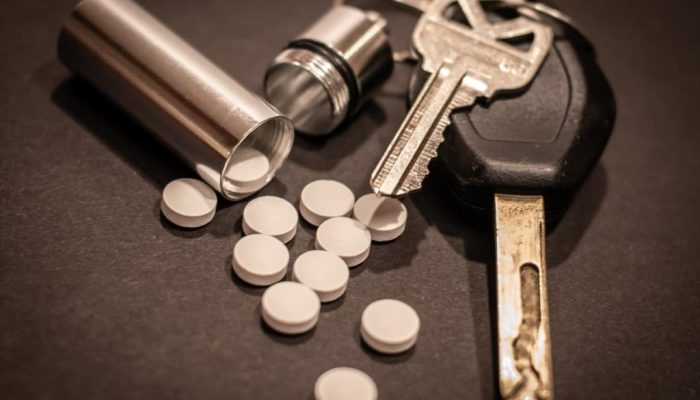Prescription Opioids and Cars Don’t Mix
Even though the news cycle is currently dominated by the pandemic and societal issues, it’s hard to turn on the television or open a newspaper without hearing about a drug-related death or crime.
According to America’s Health Rankings, Pennsylvania had a 25% increase in drug deaths in the 2018-2019 period. That is an increase of 185% since 2007.
Over the years, new channels of drug distribution and trafficking across Pennsylvania have led to higher rates of drug addiction, which leads to more cases of drugged driving.
One of the most dangerous drugs impacting Pennsylvanians is prescription opioids. The Pennsylvania Governor’s Highway Safety Association found that 45% of fatally injured drivers tested positive for drugs in 2016. More than half of those tested positive for opioids.
If you received a DUI or DWI charge in Pennsylvania, you need to hire an experienced drug defense lawyer to represent you and work to reduce your charges.
Driving While Taking Prescription Drugs
Not all prescription drugs impair driving, but those that do will have warnings printed on the bottle. High-dose opioids will affect almost all drivers to a degree, but if an individual is abusing these drugs, they are putting themselves and others at risk if they get behind the wheel of a car. Additionally, many people who abuse prescription opioids combine these drugs with other prescriptions or substances, increasing the danger.
Common prescription opioids that impair your driving and may lead to your DUI charge include:
- Codeine
- Fentanyl
- Hydrocodone and hydromorphone
- Oxycodone and oxymorphone
- Morphine
How Prescription Opioids Affect Your Body
Opioids bind to and activate pain and pleasure receptors in the brain. They block signals of pain and release large amounts of dopamine, which creates feelings of pleasure and satisfaction. Because of the way these drugs affect the brain and body, they can have dangerous side effects, especially if an individual tries to operate a vehicle while taking the drug. These effects include:
- Confusion
- Drowsiness
- Euphoria
- Nausea
- Slowed breathing
An individual must be conscious and alert to operate a vehicle safely and legally. Prescription opioids themselves can cause injury or death, but driving after having abused or misused these drugs can be disastrous.
Measuring Drug Impairment in Pennsylvania
If you were arrested for a drug-related DUI, the prosecution must present chemical evidence that you had a certain level of a substance in your body at the time of your arrest. Unlike alcohol-related tests, there is no two-hour limit for chemical blood tests to detect drugs. Labs have identified “cut-off” limits for drug testing. These limits are chosen to minimize the number of false-positive results, which could lead to unlawful arrests.
The cut-off levels for prescription opioids are measured in nanograms per milliliter (ng/mL):
- Codeine/morphine – 2,000 ng/mL
- Oxycodone/oxymorphone – 100 ng/mL
- Hydrocodone/hydromorphone – 300 ng/mL
There are issues with chemical testing for drug-impaired driving. For example, the same levels of the same drug don’t affect people identically. That means that some drivers may be impaired while others are not, making a standardized drug test quite arbitrary. Unfortunately, these tests have led to many innocent people being arrested in Pennsylvania, which is an unacceptable intrusion of justice.
Driving Under the Influence of Marijuana
Recreational marijuana use is illegal in Pennsylvania, but medical marijuana is not. Almost 200,000 Pennsylvanians are state-approved medical marijuana patients. However, an individual can be charged with a DUI if they drive with any amount of marijuana or its metabolites in their blood.
The initial cut-off level for marijuana metabolites is 50 ng/mL.
Complicating the issue is the fact that THC, the psychoactive compound in marijuana, can stay in the blood for up to a month. Therefore, some people who are approved to use marijuana for medical purposes are being charged with DUIs. Pennsylvania has a zero-tolerance policy for THC, which is a problem for the individuals who medically require it for everyday life.
If you are approved to use medical marijuana in the state of Pennsylvania but have been charged with a DUI, contact the Law Offices of Steven Kellis for legal assistance. Our attorneys will protect your rights and work to reduce charges.
Know Your Rights
Prescription opioids serve a purpose in reducing pain, but when used incorrectly, they can be extremely dangerous for individuals and the public.
Even if you made a mistake and drove while under the influence of a prescription opioid, you have legal rights, including the right to consult with an attorney. If you have been given a criminal, administrative, or other court-ordered charge related to drugged driving, contact Pennsylvania drug defense attorney Steven Kellis today for a free consultation at (215) 977-4183.
